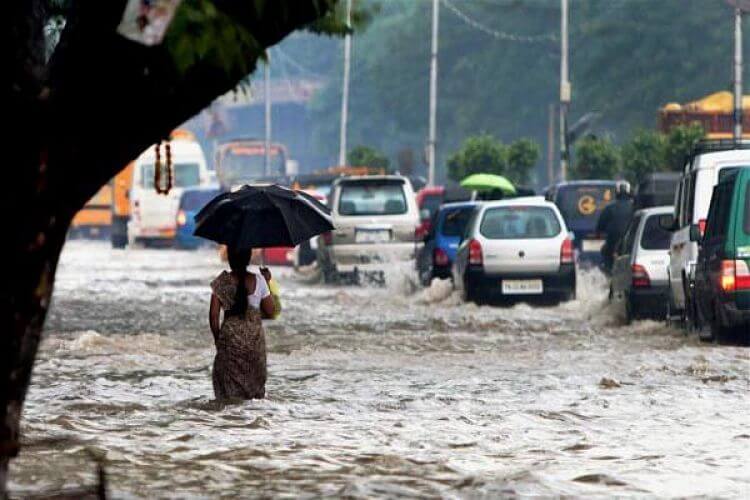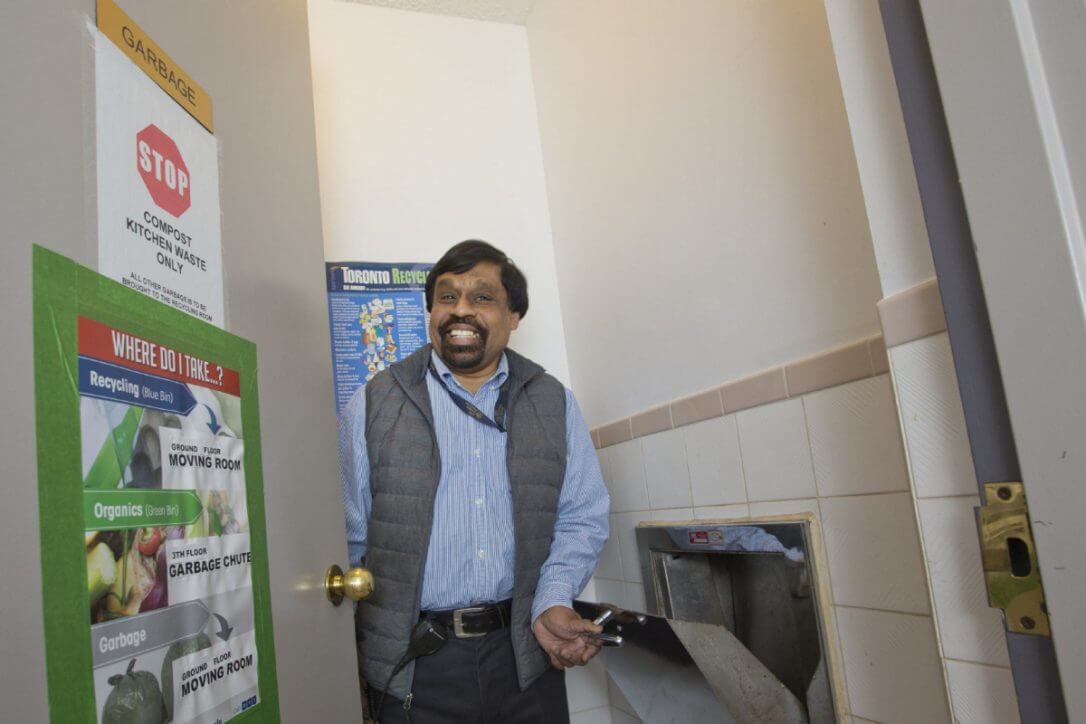
Talking about climate change is kind of like talking about sex in grade nine; it feels uncomfortable, but the more we bring it up with our friends, the more we realize they’re all thinking about it too.
How could they not be? Even if they’re not keeping up with the science, it’s undeniable that it’s happening all around us.
We feel it in the multiple extended heatwaves of the summer, the erratic warming and cooling of our winters, the no longer recognizable schedules of the seasons.
We are seeing it’s harsher forms take shape more often as well. Last year’s wildfires in Fort McMurray, this year’s historic flooding in Quebec, and the second straight year of deadly mudslides in Sri Lanka are just a few recent emergencies that are tied to climate change.
Scientists and military strategists agree that the rising frequency of such events poses the greatest threat to national security, and is the increasing root of radicalization and global conflict.
Amidst such bleak commentary, it’s natural to try and suppress our anxieties on the issue. Like high school, we opt for the flight response: look the other way, pretend we don’t notice, and give Sandy the silent treatment – only this time she’s a hurricane.
Broadly speaking, however, this tendency to shy away from acknowledging climate change seems particularly pronounced in the Tamil diaspora in Canada. As a community we rarely discuss questions of environmental responsibility – despite Jaffna’s position as cannon fodder to rising tides.
There are individuals among us though that have made it their life work to combat this issue. Dusha Sritharan is one such individual.
[caption id="attachment_17181" align="alignleft" width="320"] Dusha Sritharan, Climate Change Campaigner[/caption]
Dusha Sritharan, Climate Change Campaigner[/caption]
Dusha is the Climate Change Campaigner for Toronto Environmental Alliance (TEA), a non-profit advocacy organization that has steered environmental policy in the city for the last 28 years. In this time, TEA has influenced City Hall to implement the Green Bin, ban toxic pesticides, expand the Greenbelt, and shut down incinerators, just to name a few major wins.
As Climate Change Campaigner, Dusha has personally lobbied City Counsellors and served in advisory roles for city planning efforts on sustainability. Most recently, she has been a key member of the Modeling Advisory Group for TransformTO – the City’s ambitious plan to address Climate Change and reduce greenhouse gas emissions by 80% by the year 2050.
Though I didn’t meet her until interviewing her for this article, I first learnt about Dusha last fall, when I started getting involved in environmental organizing in Toronto. It seemed I was always at the right place at the wrong time to catch Dusha, but I heard her name being mentioned with admiration all around me.
Whether it was a video of Dusha giving a powerful deputation at City Hall, a forward of a rallying email she had written, or the sharing of instructive resources she had created for others to take action, her work was being referenced at almost every event or meeting I went to in the environmental organizing world. I even noticed leaders from other social justice movements name-dropping Dusha Sritharan in conversation as a way of showing street cred.
It was evident to them, by the breadth of her actions, that she is a local hero. It was evident to me, by the breadth of her name, that she is a local Tamil, and this made me confused.
How could it be that an accomplished Tamil Torontonian woman, who should by all accounts be a source of inspiration for our youth, be unheard of to anyone I knew in the Tamil community? Did our people not consider addressing climate change as a worthwhile endeavour? I reached out to Dusha to hear her thoughts.
“People care about these issues. That’s where I think I get challenged,” Dusha explained. We were sitting in a meeting room at TEA headquarters; maps detailing campaign progress in different city wards covered the walls around us.
“It’s not that they’re denying climate change, I think most people think it’s a real thing. They’re just overwhelmed with it, and they’re like ‘where do I start, it’s a global thing’, and they don’t feel like they can do something here at home.”
This was a refreshingly compassionate outlook. It is easy to interpret the lack of mass mobilization on a threat as serious as climate change as a sign of public indifference. However, that type of thinking is not only self-defeating, it is untrue.
Psychologists refer to this phenomenon as pluralistic ignorance, or more colloquially as the spiral of silence. It concludes that, though the majority of individuals are deeply disturbed by climate change, they do not talk about it openly because nobody else in their social circles is doing so. The only possible reason for this – we convince ourselves – is that others don’t believe climate change is as serious as I think it is, so they’ll judge me negatively if I voice my concerns.
Ironically, the self-silencing that stems from this reasoning is the greatest barrier to addressing climate change.
The good news is that this illusion can easily be shattered. The same study that linked climate change to the spiral of silence theory, also showed that climate change is such a top-of-mind issue for people that they are very likely to initiate discussion on the topic if they believe most people around them are also concerned. Therefore, an upward spiral of engagement can be sparked just from talking about climate change at every opportunity; a culture we must all take responsibility for creating. This level of mass discourse is key to shaping the systemic change that is needed.
Of course to catalyze this shift, the first step is believing that others already care, and approaching conversations from that standpoint.
“Most people are very proud of the fact that they recycle and use the green bin. They’re doing it because they care about the environment and the next generation,” said Dusha.
“When you tell them ‘11% of our emissions in the city is from waste – by just diverting your organic waste and making sure it goes in the green bin you’re doing your part to address climate change,’ they feel good. That’s the kind of stuff you want to pull out first. Not to start with ‘here’s what I think you should do,’ but instead ‘what do you care about?’ and making the connections to climate change.”
Dusha also spoke to the importance of including the elders of the Tamil diaspora in these conversations, and empowering them to be lead voices.
“If you want to talk about the hard hitting impacts of climate change like water scarcity, droughts, floods, I can’t speak to those from personal experience, whereas they’ve dealt with it back home. My parents can talk about severe storms in a way that I can’t.”
Plus, Sri Lanka is at immediate risk she pointed out.
“The impacts of climate change are going to be very hard felt on islands. Sri Lanka can likely go under with sea level rises, so our parents are more invested because they’ve grown up there – they’re attached to this place called home.”
Later, our conversation shifted to the lack of exposure Tamil environmental leaders receive within our own community. Dusha agreed that we need to broaden our definition of success.
She informed me of various local Tamil leaders I hadn’t heard of, including Princely Soundranayagam, a Scarborough condo superintendent who rallied the residents of his building to implement city-leading zero-waste systems. Today his condo diverts more than 85% of waste in his building – a staggering accomplishment given that the average Toronto high-rise only diverts 26%.
[caption id="attachment_17182" align="alignleft" width="1086"] Superintendent Princely Soundranayagam of Mayfair on the Green in Scarborough (KEITH BEATY / TORONTO STAR)[/caption]
Superintendent Princely Soundranayagam of Mayfair on the Green in Scarborough (KEITH BEATY / TORONTO STAR)[/caption]
Princely realized this feat the good old-fashioned way - by going door-to-door and talking with his residents about shared environmental concerns and the solutions he had in mind. Now the 1,000 plus residents use the trash chute solely for disposing organics, leading to trash output being cut to one dumpster every two months from one dumpster every week. Mayor Tory is so impressed with these results, he personally toured the condo himself to get Princely’s advice in replicating the model for other condos in the city.
Dusha’s point in sharing this story was it’s not that environmental leaders don’t exist in the Tamil community, it’s that we often don’t acknowledge them in the way we celebrate other kinds of success, and that’s something that needs to improve. Our young deserve a diversity of role models so that they can strive to be well-rounded leaders, and pursue opportunities that are most in line with what they value. This means highlighting not just the end results of high net worth and social notoriety that some leaders achieve, but also the day-to-day heroics of those that confront our society’s greatest challenges.
Though there is a broad consensus among scientists that we are now living the sixth mass extinction of the earth – one that is being caused by humanity -, they are clear that we can still mitigate the most cataclysmic impacts if sufficient changes are made in the next 20 – 30 years. Against this backdrop, being loud in voicing our climate concerns and celebrating our climate leaders not only increases the chances of our survival - it motivates our young to aspire to solve this problem.
Continuing the Conversation:
There are many groups working in Toronto to advance the cause, each with a unique organizing philosophy, focus and culture. This variety means that you can always find a group where you not only fit in, but importantly have room to add significant value.
The centre of this web is Toronto Climate Action Network (TCAN), where representatives from all the action-oriented groups share what they’re planning and discuss ways to collaborate. For more information on TCAN, please visit their website: http://tcan.ca/our-members-0.
I’m also happy to further discuss any thoughts or questions you may have. Please feel free to contact me directly at [email protected].

























